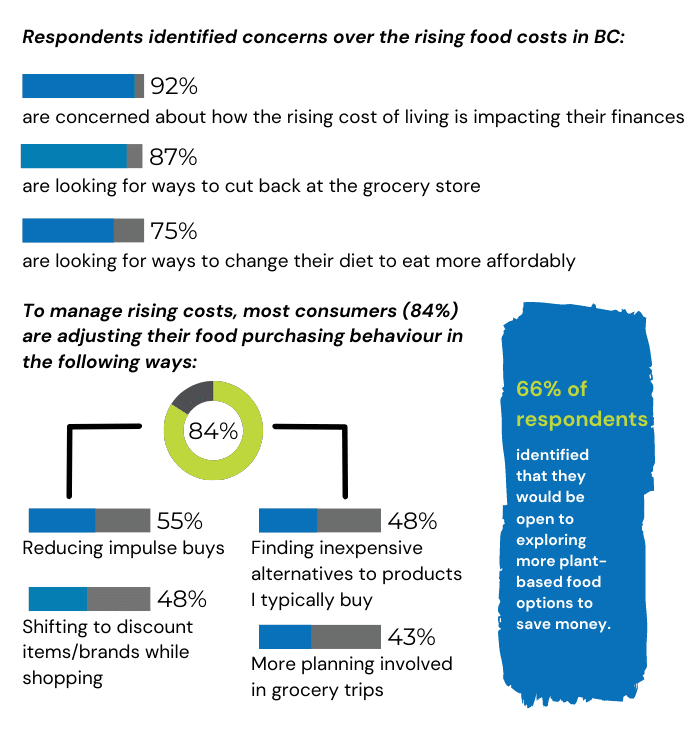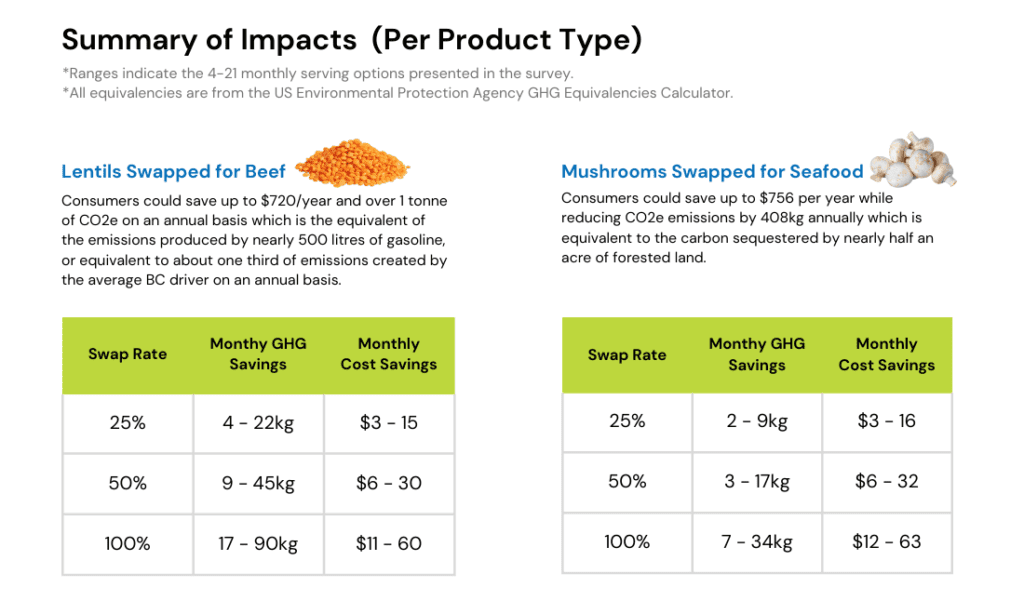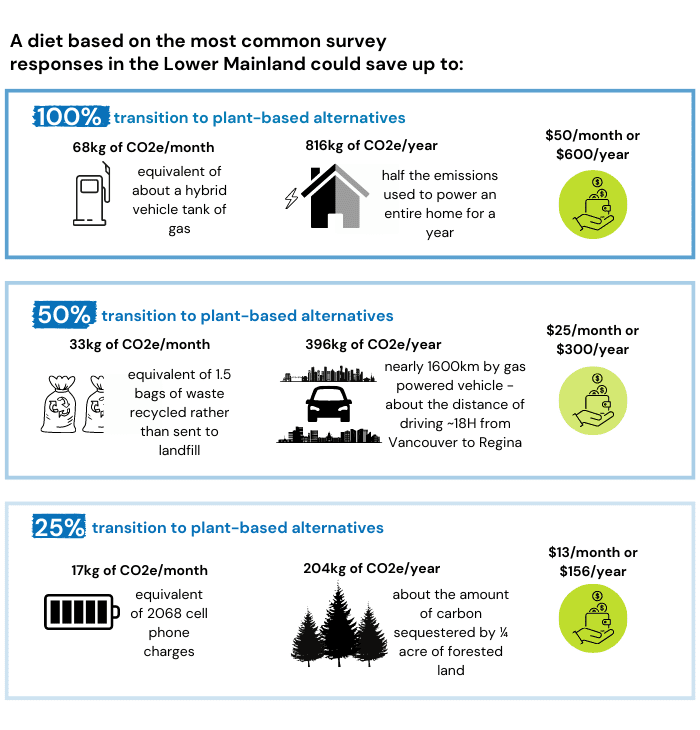VANCOUVER, May 30, 2023 – Switching to a plant-based diet could save you around 14% at the till, says a report released today by the Vancouver Humane Society (VHS). The report details how eating more plant-based foods can help individuals in British Columbia’s Lower Mainland to cut down on grocery costs, reduce emissions, and save animal lives.
@vancouverhumane Eating a plant-based diet could save you $600 a year on groceries! #PlantBased #Vegan #VeganForTheAnimals #Budgeting ♬ original sound – Vancouver Humane Society
These findings follow the release of a poll commissioned by the VHS, which found that 92% of Lower Mainland residents are concerned about how the rising cost of living is impacting their finances and 66% would be open to eating more plant-based foods to save money. Food costs have skyrocketed over the past year, increasing by more than double the overall annual inflation rate at about 10%, and are expected to rise by 5 to 7% this year according to Canada’s Food Price Report 2023.

By making the swap to plant-based alternatives, the average person could save $50 each month on groceries. That’s about 14% of the typical monthly cost of groceries for a person living in Vancouver, which was $355.28 last year. The savings are greatest when swapping out animal products for whole foods – for instance, switching from chicken to tofu rather than to manufactured meat alternatives.
Individuals who eat a lot of beef and seafood could see even higher savings. Swapping 21 servings of beef for lentils each month could save $60, while swapping 21 servings of seafood for mushrooms could save a whopping $64 monthly.

In addition to cost savings, eating a plant-based diet could reduce an individual’s carbon footprint by 816kg of carbon dioxide equivalents (CO2e) annually – about half of what it takes to power an entire home for a year.

A switch away from beef carries the greatest environmental impact – in the typical Lower Mainland diet, swapping beef for lentils reduces greenhouse gas emissions by nearly twice as much as swapping out all other animal products combined.
In 2020, a similar report from the VHS entitled “Increasing Plant-Based Purchasing at the Municipal Level” outlined the benefits of shifting toward more plant-based foods purchased by the City of Vancouver, including through catering, city-run concession stands, and municipal food funding. That report found by replacing 20% of animal-based food products with plant-based alternatives, the City of Vancouver could save up to $99,000 and reduce greenhouse gas emissions by more than 500 tonnes. In 2021, the Vancouver City Council unanimously passed a motion to explore policy recommendations outlined in the report.
– ends –
SOURCE Vancouver Humane Society
For more information, contact Chantelle Archambault: 604-416-2903, chantelle@vancouverhumanesociety.bc.ca
Related links:
https://plantuniversity.ca/individual/plant-based-poll/
https://plantuniversity.ca/wp-content/uploads/2020/05/Final-VHS-Report-Plant-Based-Diets-.pdf
Related media:
https://drive.google.com/drive/folders/1iekaOJi-k5iIl7o70uUEafciZWFPlyYf?usp=sharing
https://www.tiktok.com/@vancouverhumane/video/7238681795196095750

